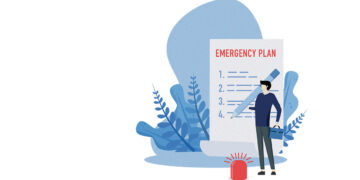Millions of American women know the pain and emotional tumult of premenstrual syndrome, or PMS. But a new study finds that diets full of iron from plant-based sources might help ease the condition.
Women who ate in this way were about one-third less likely to develop PMS than women who consumed less iron, the researchers found. Non-meat sources of iron include dried beans and green leafy vegetables.
Another mineral makes a difference, the study found. Higher levels of zinc were also associated with less PMS over the 10-year study period. Zinc occurs in many fresh fruits and vegetables.
“It does look like a range of minerals are important for menstrual cycle health and for PMS. Women should consume a balanced diet, and if they’re not getting enough nutrients from their diet, they should take a multivitamin,” recommended senior study author Elizabeth Bertone-Johnson, an associate professor at the University of Massachusetts Amherst.
Bertone-Johnson said the researchers don’t know exactly why iron might be associated with less PMS, because iron is involved in many processes in the body. They think higher levels of iron might reduce the pain and emotional symptoms of PMS by boosting levels of a brain chemical called serotonin. Low serotonin levels play a role in clinical depression, and Bertone-Johnson said that serotonin has been linked to PMS symptoms in other research.
As with iron, Bertone-Johnson said it wasn’t clear how higher levels of zinc might protect against PMS.
Results of the study were published online Feb. 26 in the American Journal of Epidemiology.
PMS affects between 8 percent and 15 percent of women in their reproductive years, according to study background information. Symptoms can be physical or emotional, and may include breast tenderness, abdominal bloating, appetite changes, depression and anxiety.
The current research followed about 3,000 women enrolled in the U.S. Nurses’ Health Study II. None of the women reported having PMS at the start of the study.
Over 10 years, the women completed three food-intake questionnaires. At the end of the study, 1,057 women reported PMS, and the remaining 1,968 women did not.
After adjusting the data for calcium intake and other factors, the researchers found that the women who consumed the most non-heme iron had up to a 40 percent lower PMS risk compared to the women who consumed the least non-heme iron. Non-heme iron is iron that comes from plant-based sources or supplements, rather than from meat.
The risk of developing PMS dropped significantly for women who consumed more than 20 milligrams (mg) of iron daily. The lowest risk was seen in women consuming nearly 50 mg of iron daily. However, the recommended daily intake for premenopausal women is 18 mg per day, according to Bertone-Johnson.
As for zinc, a slightly protective effect for women consuming more than 10 mg daily was also seen.
But, Bertone-Johnson cautioned, both of these minerals can be harmful if taken at above average levels.
The researchers found that higher potassium levels were linked to higher levels of PMS, although Bertone-Johnson said these and other findings from this research need to be confirmed in other studies. Interestingly, the researchers didn’t find a connection between sodium, which can make you retain water, and PMS.
“PMS is probably multifactorial, and it’s probably way more complicated than one or two supplements or mineral deficiencies might cause,” said Dr. Fredric Moon, medical director of general obstetrics and gynecology at Winthrop University Hospital in Mineola, N.Y.
Moon advised women to check with their doctors before starting any type of supplements. Iron levels can be checked with a simple blood test, he said.
Clinical nutritionist Samantha Heller, at the NYU Center for Musculoskeletal Care, agreed. “It’s important to speak with your physician before supplementing with any minerals,” she said. “Too much iron can cause serious problems, and supplementing with something like zinc can knock your copper balance off. There’s a delicate balance in the body, and women need to be very thoughtful before they start using supplements.”
Heller explained that it’s difficult to tease out the effect of any one particular nutrient. But, she added, “If a woman wants to shift to a more plant-based diet, it may contribute overall to reduced oxidative stress and inflammation, which may help reduce the symptoms of PMS, and heart disease and other conditions.”
While the study found an association between dietary iron and zinc and decreased PMS symptoms, it did not prove a cause-and-effect relationship.



























